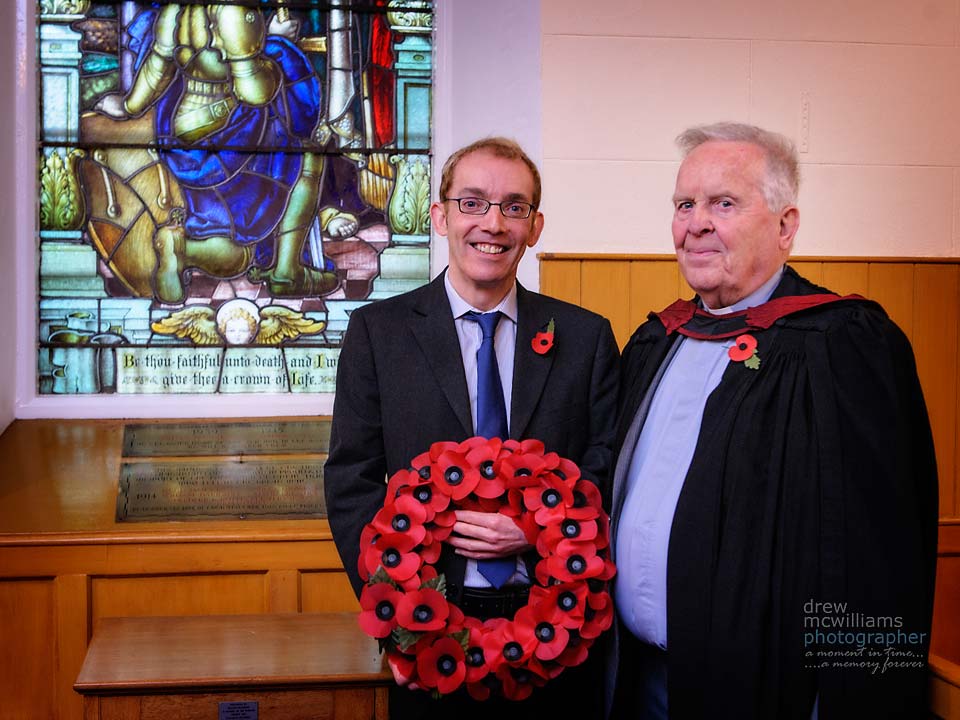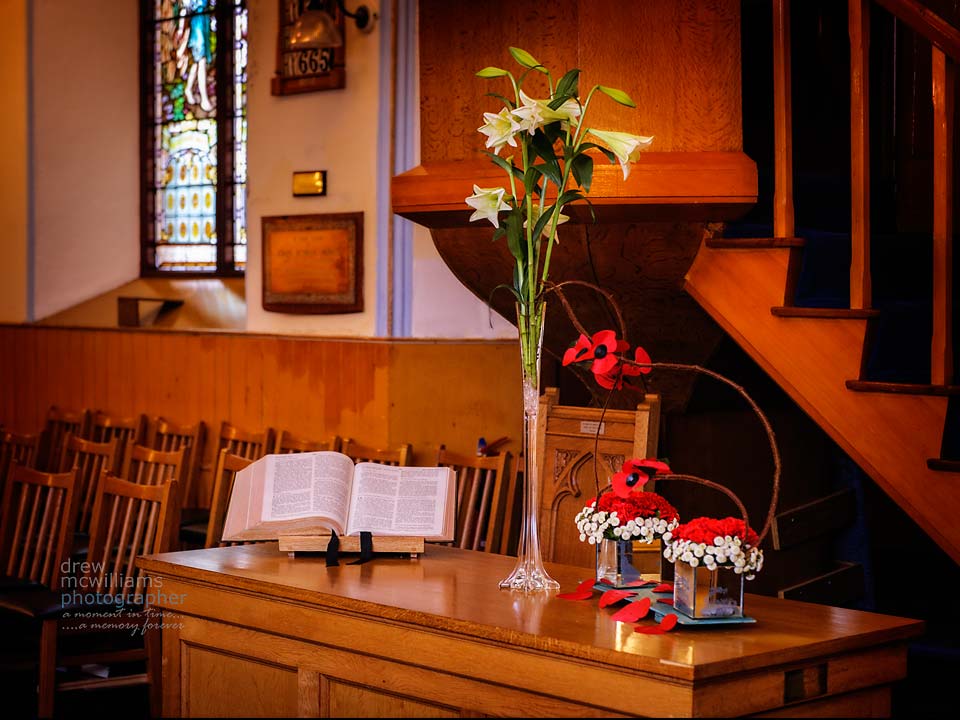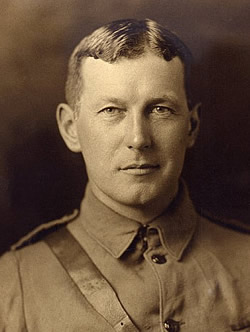Rev Sam read from Micah 4: "They will hammer their swords into ploughs and their spears into pruning knives" and said there was as much need for all nations to have ploughs and pruning knives today as there was in Micah's days, and urged arms manufacturers to turn their production to peace. He included the poem, "In Flanders Fields".
The flowers were supplied by Joan Black and the arrangement designed by Anna McVeigh.
| In Flanders Fields by John McCrae, May 1915 In Flanders fields the poppies blow Between the crosses, row on row, That mark our place; and in the sky The larks, still bravely singing, fly Scarce heard amid the guns below. We are the Dead. Short days ago We lived, felt dawn, saw sunset glow, Loved and were loved, and now we lie In Flanders fields. Take up our quarrel with the foe: To you from failing hands we throw The torch; be yours to hold it high. If ye break faith with us who die We shall not sleep, though poppies grow In Flanders fields.edit. |
During the early days of the Second Battle of Ypres a young Canadian artillery officer, Lieutenant Alexis Helmer, was killed on 2nd May, 1915 in the gun positions near Ypres. An exploding German artillery shell landed near him. He was serving in the same Canadian artillery unit as a friend of his, the Canadian military doctor and artillery commander Major John McCrae.
As the brigade doctor, John McCrae was asked to conduct the burial service for Alexis because the chaplain had been called away somewhere else on duty that evening. It is believed that later that evening, after the burial, John began the draft for his now famous poem “In Flanders Fields”.
(Source: The Great War - A Guide to WW1 Battlefields and History of the First World War)



 RSS Feed
RSS Feed